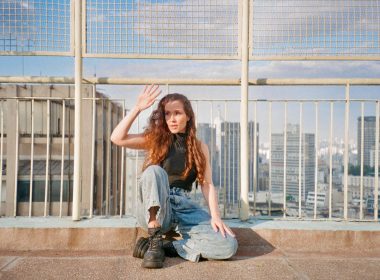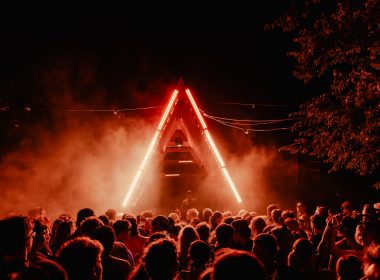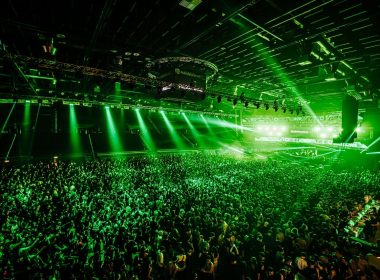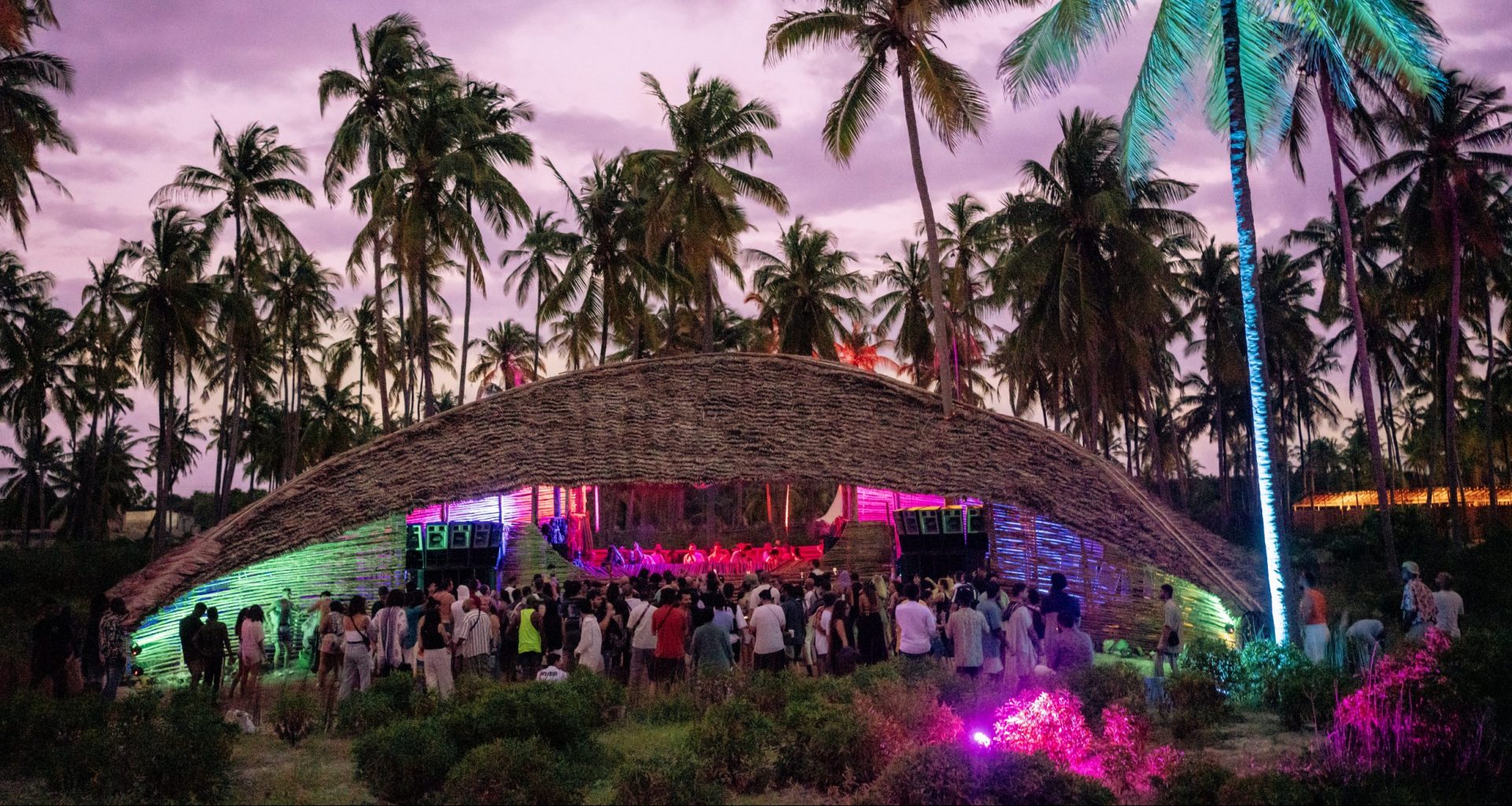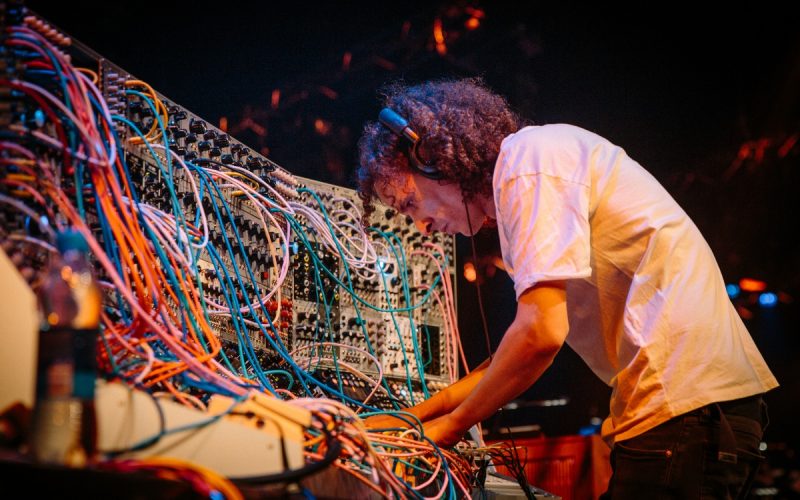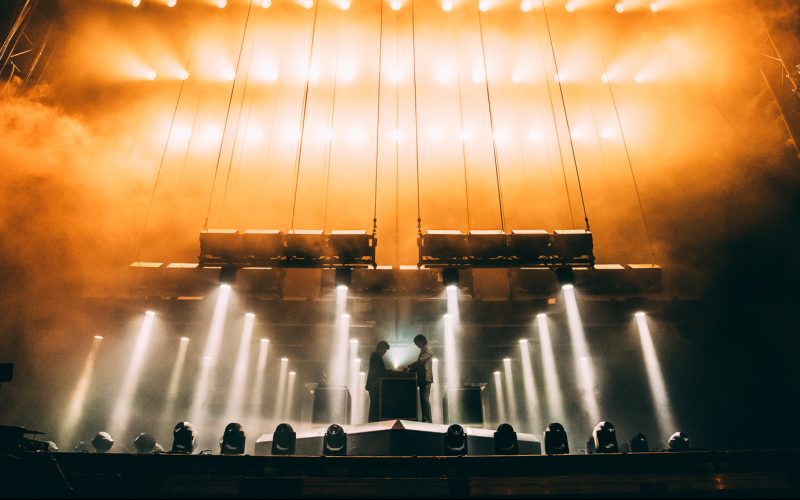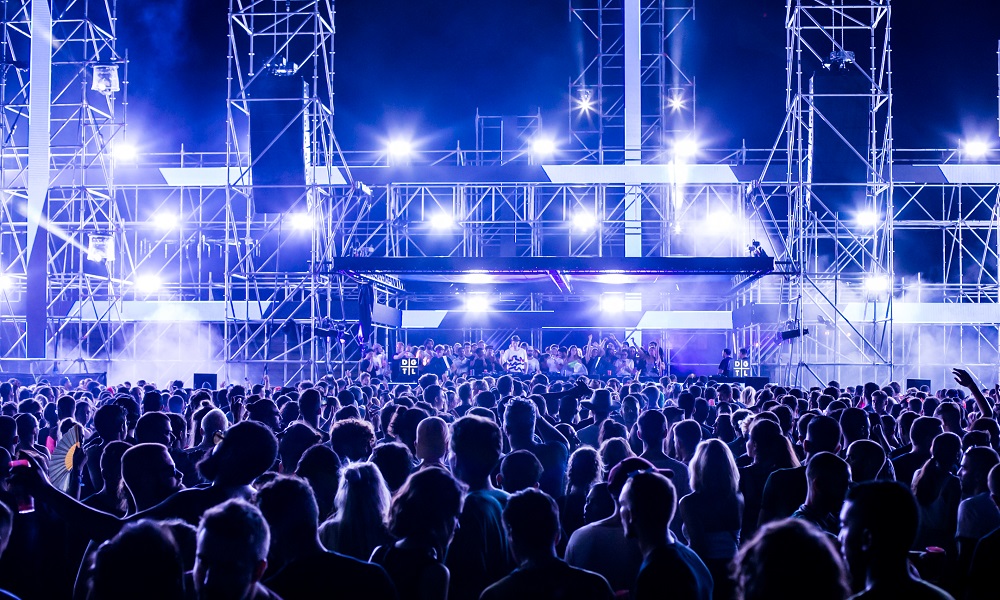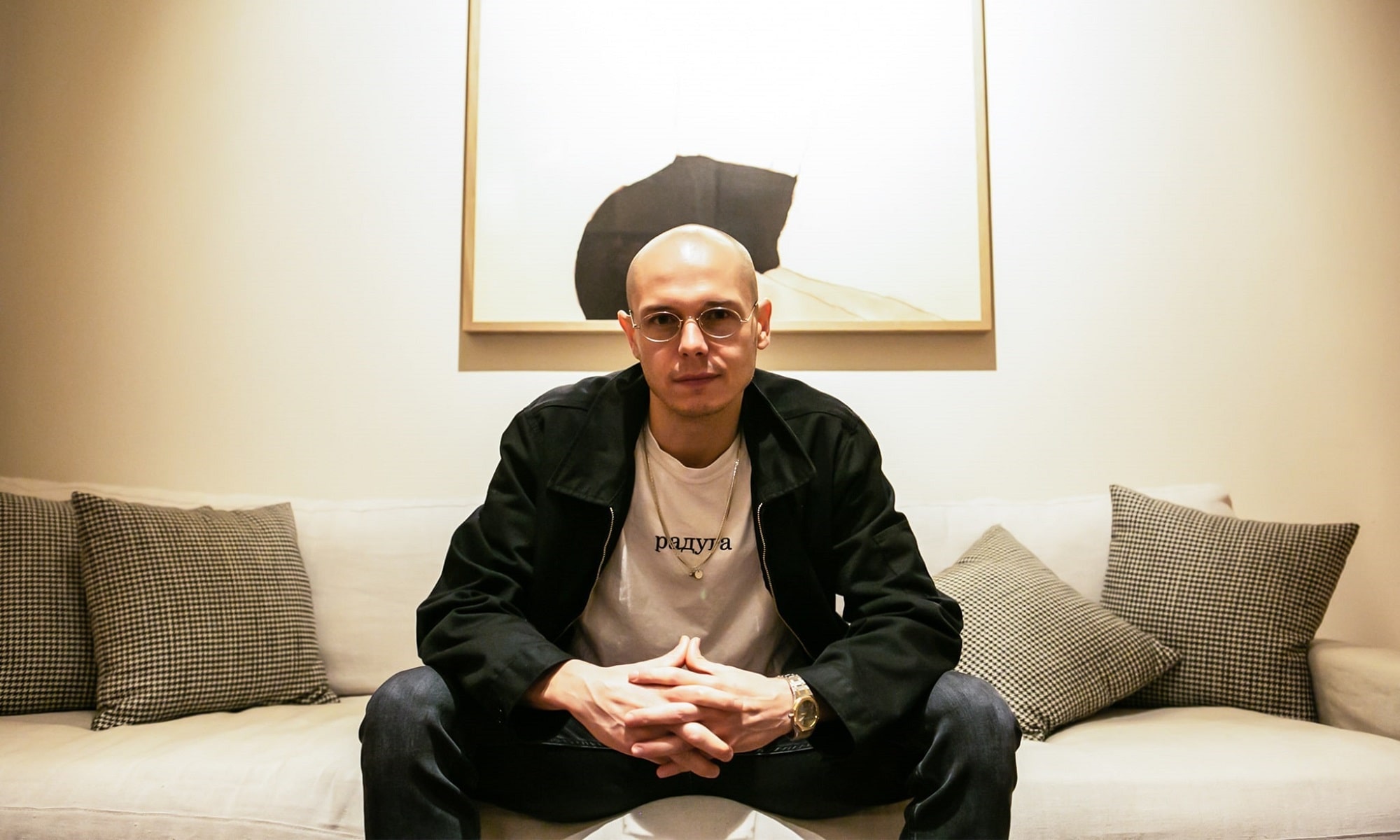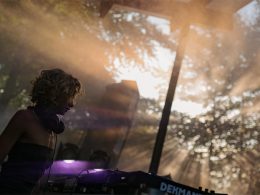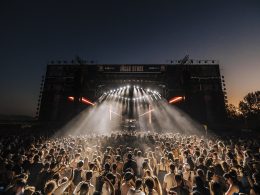Nestled on the idyllic shores of Bwejuu Beach in Zanzibar, Soundscapes is a one-of-a-kind boutique experience for music lovers, adventurers, and seekers of connection. With a strong bond with the cultural heritage and a personal story behind it, the event is about to host its IV edition themed ‘Wings of Change’ including acts such as Sonja Moonear, Floyd Lavine, Dyed Soundorom, Eli Verveine and many more.
And what better way to celebrate it than diving deep into their essence? Explore our interview with the founders, where we discuss the origins, their commitment to the local community, their vision for the future and a lot more. Discover the magic of Zanzibar with Soundscapes!
Can you tell us about the journey that led to the creation of Soundscapes? What has been your biggest learning since the beginning?
Soundscapes started off as a jam between a group of best friends and family. Some of us in the founding team are brothers and cousins, and all of us are passionate music lovers, electronic music to be specific. 10 years ago we gathered on a farm in Bahrain, brought out some decks, some speakers and really wanted to just share music with one another.
Our extended group of friends came out and the first one was just intimate, the next one they brought their friends and it grew to like maybe 50 people and then we decided to host another one and that pulled in maybe a hundred people and then 200 people came out, then 500, then a thousand. It really was fully organic, the way it grew and it created a community of music lovers. Ten years later we now find ourselves in Africa on a paradise island hosting a four-day festival.
As for the biggest lesson, I think for us, recently we spoke about this, that we have a truly profound impact on the world and on people that attend. There’s a pivotal change that happens to them and their minds and how they perceive their life in the world after attending Soundscapes. It creates a change in the world, be it relationships, be it through inspiration, artists that come out and use it as a platform to propel themselves and their career and their admiration to music.
The lesson is how profound a change and impact we can create in the world and a positive one and how events such as Soundscapes are critical for the world.
What is the story behind ‘Wings of Change’, the motto of this 4th edition? What do you believe will be the main changes from past editions?
When we came to Zanzibar, it was really a bold move to try and attempt to host an electronic music festival in Africa, given the complexities and unknown territory for us. But we were able to do two editions in Paje, and then we took a leap of faith and we purchased a land, the coconut forest land, and hosted our third edition.
For us, that was the pledge. If we are capable to host an event on the new land and cement ourselves there, to know that this could be the future of Soundscapes, and we can do it successfully, then that could be a pivotal part in our history.
Wings of Change is this inflection point in the story and timeline of Soundscapes, that we have found our home. We pledge to the island in Zanzibar that we are here and wish to stay. This is the moment that we go full speed in this new home of ours. But on a more high level as well, like Wings of Change, pain is life’s change agent. The world is going through a lot of events, painful events. We wanted to kind of shine light and a beacon of hope that things will change for the world.
Soundscapes, if you look at our logo, it’s a bird. We wanted to represent that things will be okay. Things will change. Again, pain is life’s change agent. And we have to go through pain to go through change and to enter new chapters. It’s a multifaceted meaning for the title.
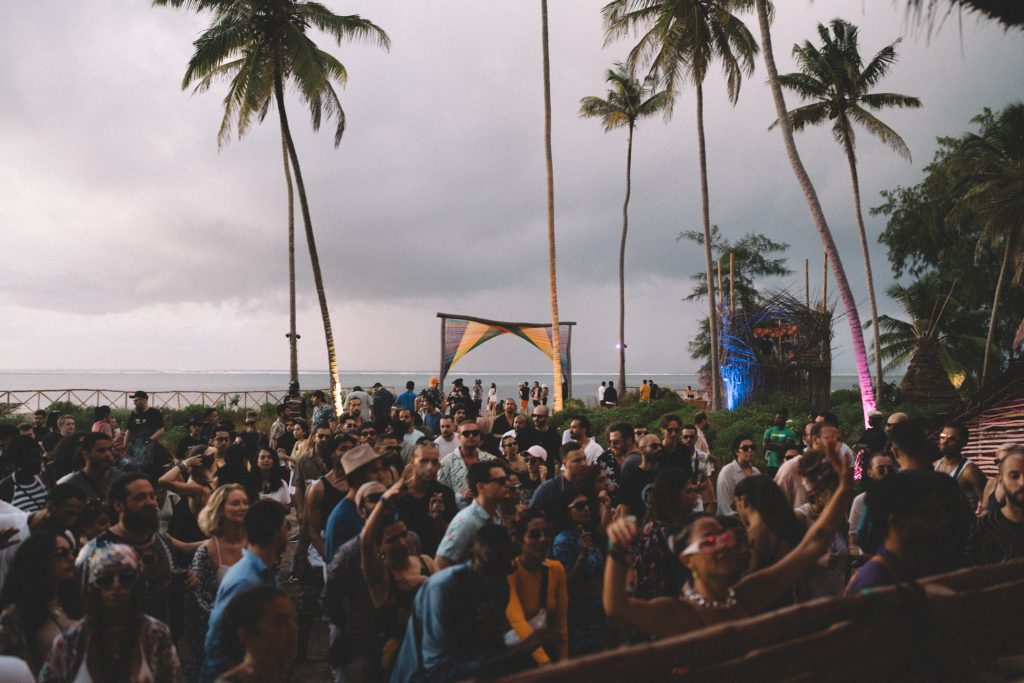
You get visitors from all over the world, with different backgrounds and ways of enjoying music and culture but…What challenges and opportunities do you see in the African electronic music scene today? How do you ensure the programming respects and integrates the cultural heritage of Zanzibar while appealing to an international audience?
The electronic music scene in Zanzibar specifically is actually quite interesting. There is a community here. There’s several beach clubs that invite DJs and artists, residents that live here that play phenomenal music. Also a nightclub that opened called “Why Not?” and it’s the first indoor, like after-hours club in Zanzibar.
There’s already a scene that has been nurtured, and to speak about Africa at large, I think that it’s very diverse in different places, considering the different cultures involved. Considering Egypt, Tunis, North Africa, South Africa, there’s many different scenes in Africa.
But to zoom in on Zanzibar specifically, I think there’s a brewing and up-and-coming scene. Obviously, it comes with its challenges, right? To try to build a scene from scratch. But the attempt and the approach of the promoters has been to build the scene organically and nurture it step by step and co-create together. So Soundscapes will host its annual festival versus where these clubs and beach clubs and nightclubs are here to stay year round. We co-create, we coexist together. We attempt to work together hand in hand to try to push the scene forward. It’s really important that we understand that we’re all in this together. And it has to be a mutual effort to push the scene and grow the scene collectively. That’s really been at the core ethos for us.
Soundscapes is a multisensory and multidisciplinary experience. How do you ensure a varied and engaging experience across different times of the day?
Regarding the experience, we had to consider a range of sound, right? Soundscapes is the name. And so the way we introduced that is through different activations throughout the festival.
If I walk you through like a typical day at Soundscapes, throughout the early hours of the day, we have a shala, which is sort of like a temple of wellness. And within that, we have activations with various healers and sound healers and yoga and wellness and breathing, therapy and all that surrounds that universe is offered.
Then we have our Oasis stage. This is a beach front stage for the first time being properly activated. We’ve imported the Jamaican sound system. This stage is sort of an alternative sound that allows artists to play sets that typically wouldn’t be able to play on a main stage. We see a lot of sort of dub and down tempo. Sometimes ambient sets that they play, sometimes jazzy and beachy and happy sounds. It’s very experimental.
Then, of course, we have the Luna stage, which is our main Soundscape stage. That’s really where the heavy, heavy sets get delivered. That’s usually how we provide sort of a range and experience. Depending on what you like, you have various pockets of the festival that provide these different experiences to provide variety and stick to the meaning of Soundscapes. That it really is the entire range of sound, is what we try to offer at the festival.
Given the festival’s commitment to community, diversity and sustainability, could you explain any specific initiatives that Soundscapes has implemented in this regard?
As for the local communities, there’s two questions about our commitment to community as well as the cultural heritage of Zanzibar. We knew this early on, that it’s critical for us to co-create Soundscapes together with the local community and to be respectful in every way to Zanzibar and its heritage that has been here for as long as time exists.
For us as visitors, we’re fresh. We’ve just come in. It was really important for us to co-create, integrate in the right ways. We seeked guidance from friends that are locals on how to take the right steps and pursue the right measures. It’s just about building a support network. You do that through first, following the right methods and guidelines locally. To do things the right way is to integrate the locals in as many aspects as possible, always to go local first in every aspect. Be it people, vendors, suppliers, etc.
Then be very mindful and proactive when you are with the local community. To try to engage them, coach them, teach them, educate them, train them and finance them too. To ensure that the festival provides, but also coaches and grows the people.
Because of this approach, I think Soundscapes has been perceived positively by the local community, even by members of the government, the president’s cabinet. They all are positive and give us the right support and they push us to continue Soundscapes and they see the profound impact. It’s about respect and doing things the right way and just approaching things with the right values that could create the best outcome for us and for the local community.
Could you explain the design and logistical challenges of hosting a festival on a historic coconut plantation? How supportive have been the local institutions with an event of this kind?
In Zanzibar compared to maybe an established place like Berlin or Dubai or metropolitan cities, the challenge is that it’s an island with very bare access to resources needed for the festival. The things that we really find challenges with is access to production equipment like sound, lighting and other major infrastructure.
A lot of that has to be imported and that creates a big challenge to source sound and lights from other countries and bring them by boat. It’s a lot of heavy lifting to try to get it done. But for production, like building the venue in a coconut plantation, that to us has been rather a positive thing because we only follow the local ways, the local building material, the local building methods, and it’s built by locals. This is their land, this is their heritage, they know how to build in such a place. It creates a very authentic setting and architecture. For the festival we only use coconut leaves for the roofs and we use local poles and wood to build the infrastructure.
There are a lot of challenges related to having a festival because you need infrastructure. It’s quite challenging both logistically and financially for us to deliver. That’s what it takes to host a festival in Zanzibar. They don’t have the infrastructure, so we have to rely on shipping and importing.
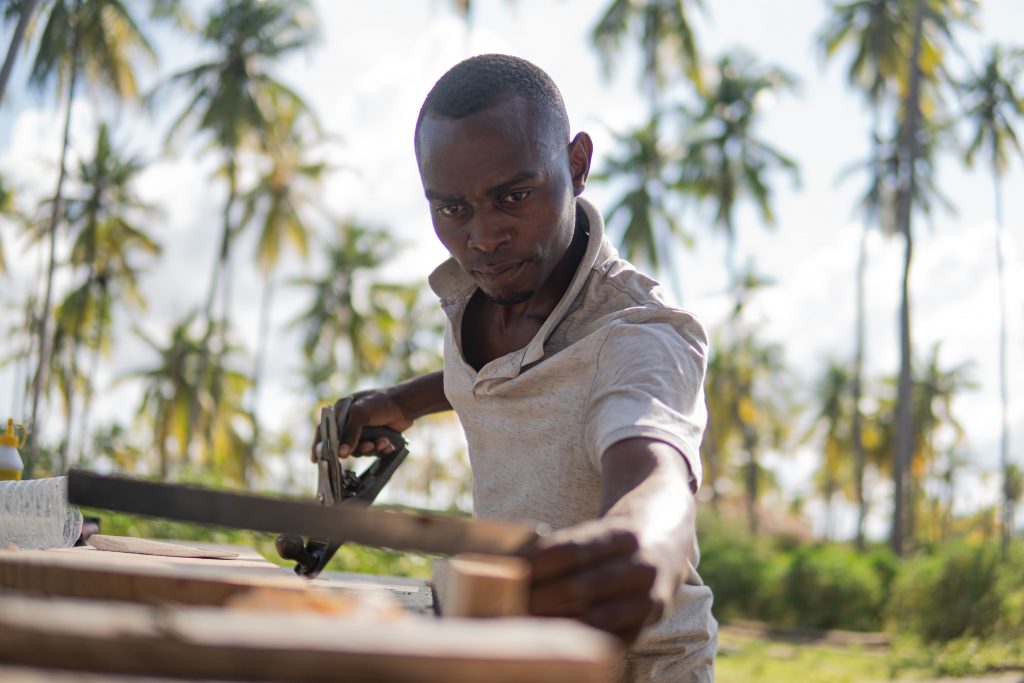
Looking towards the future, what are your aspirations for Soundscapes? Are there any dream projects you hope to pursue, both locally and internationally?
As for the future, we have a dream that we can transform the land, which we called Landscapes. It’s an entity we’ve established to run the land project and to transform the venue into a year-round Soundscapes experience. The land is quite large and expansive. It goes into the coconut plantation, into a cliff, and of course, directly in front of the beach. The idea is to continue to develop this land and create a multi-sensory year-round experience.
We could host people on the land, we would build homes and create sort of a village. That enables us to invite artists and creators to come, stay there and use it as a platform for creation.
On a more sort of grand vision, we would love to continue to develop Soundscapes all over the world. The fact that we were able to leave Bahrain and enter Zanzibar meant that we can hop, right? We can do things in different parts of the world. We want to continue to nurture our region. That’s all part of our plans. We want to continue to grow Landscapes and Soundscapes here in Zanzibar. We’re looking at other destinations around the world that can benefit from the existence of Soundscapes. We’d love for Soundscapes to continue to become a global brand and a staple in the industry.
As we wrap up, can you share an unexpected, perhaps even magical, behind-the-scenes story from organizing the festival?
For a behind-the-scenes story, I will say that, at the deepest level, at the core, we wish to inspire change through love, art, sound, community. That’s really our ethos, like it’s all comprised of love. You see a lot of stories, especially between the core team that have met their life partners through Soundscapes. It’s really a vehicle that allows members to connect and inspire lifelong relationships in the right ways.
As for a magical story, I’ll share one about one of the artists. His name is Zone+. He started off as just a pure advocate and passionate music producer and DJ. He’s one of the co-founders of Soundscapes. Back to 10 years ago, we were all just jamming. And a magical thing is that once artists come to Soundscapes, we were all learning, right? We were observing, we’re being exposed to their talent and them performing behind the decks. And it really created and shaped a platform for growth for a lot of us.
But especially for him, because he was able to shape relationships. And over the years, he got signed to Lee Burridge’s All Day I Dream label. We’ve been huge fans of different labels, Giegling is one of them, and we keep inviting various Giegling artists every edition.
A magical, almost dream scenario is that we received a video recently of Giegling’s founder, and he was playing his tracks on a set in Mexico. And we all just got inspired by that moment of having a dream as an artist and seeing the legends. Ten years later, by working and pushing and just never, never giving up, you can see how dreams can come true. I guess that’s a bit of a behind the scenes, love stories and inspiring story for an artist.








